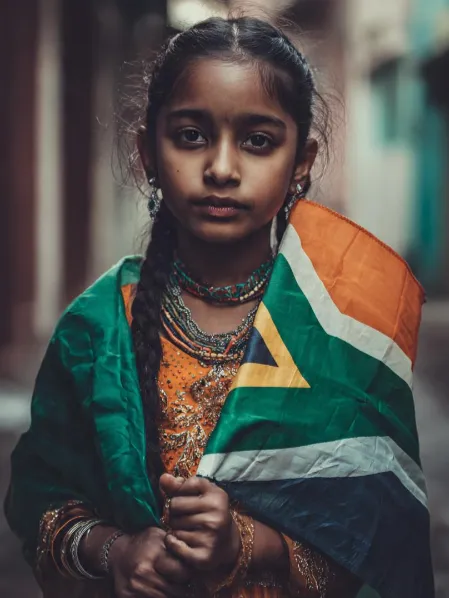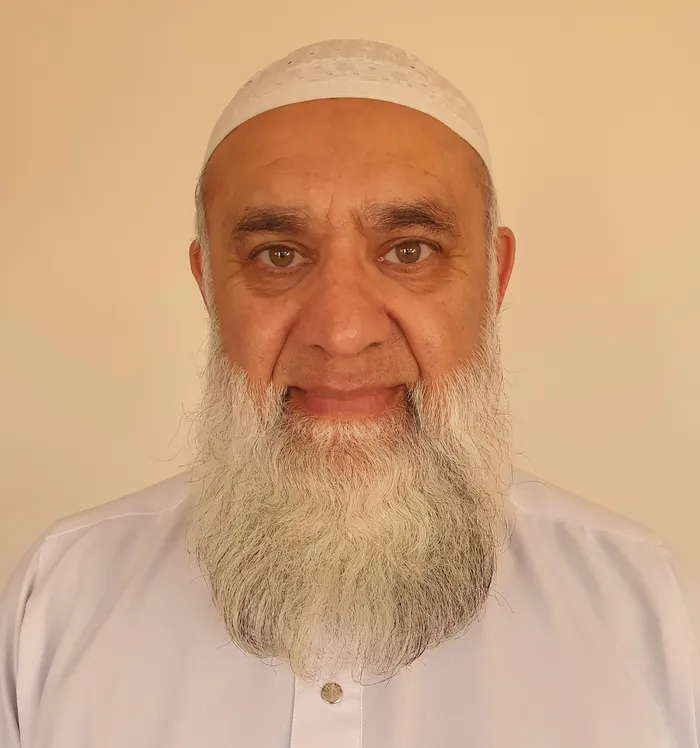
After 30 years of living in a constitutional democracy, Indian South Africans have not fully grappled with questions of their identity in a rapidly changing society, says the writer.
Image: Meta AI
WHEN I taught history in school under the apartheid system, I always put my classes through a simple test relating to their conceptualisation of their identity.
I would ask exclusively “Indian” pupils: "what do you call a person who is born in America?”
Without hesitation, they would shout out: “American!”
“And someone born in Africa?”
They would proclaim, “African!”
After a momentary pause, I would ask: “In which continent were you born?”
“Africa,” they would say.
“So, you’re African?” I would ask musingly.
“No Sir, we’re Indians, not Africans!” they would state embarrassingly.
In a matter of seconds, a heated debate would ensue among the pupils about whether we’re Africans, Indians or South Africans. But one thing most of the pupils were sure about: they were not Africans.
This simple classroom experience raised profound questions about our “identity” in apartheid South Africa. It was really a question of how pupils in the late 1980s saw themselves. Were they Indians? Were they Africans? Were they South Africans, or were they Indian South African? That was over 45 years ago. I believe these questions remain relevant today in our democracy.
After 30 years of living in a constitutional democracy, Indian South Africans have not fully grappled with questions of their identity in a rapidly changing society. Do our children know our ancestors? Do we know who we are? And do we know who we want to be in future? Do other South Africans share in our characterisation of ourselves? What is Julius Malema’s or a domestic worker’s perception of Indian South Africans?
During the 19th century, due to the widespread impoverishment of the peasantry in the Indian sub-continent, coupled with opportunities for work in the Natal colony, large numbers of Indians entered South Africa as indentured labour to work on the coal mines, the sugar cane plantations and in domestic service. They, and the subsequent groups of Indian traders, merchants and professionals who followed in their wake to make a small fortune in "Afrika", made South Africa their permanent home.
Of course, these were not the first Indians to arrive onto the shores of South Africa. They were preceded by the arrival of captured slaves from India and surrounding states to work for Dutch colonists in the Cape. Since then, ours was a painful experience for over a century of colonial rule and exploitation in Natal; Afrikaner settler domination and humiliation in the Afrikaner Republics; racial segregation and discrimination since 1910 under the Union Government; and apartheid oppression since 1948 under Nationalist Party rule.
Only on April 27, 1994, was our human dignity and freedom restored, together with that of the vast majority of South Africans.
As we celebrate 165 years or more of Indian social existence in South Africa, we must recognise that ours is a legacy of slavery, indentured labour, colonial domination and social ostracism, racial oppression and inequality.
However, we were not passive victims of a racially unjust social order. Ours is a heritage of an affirmation of the human spirit under trying circumstances and humiliating conditions. It is one of resistance to the ravages of slavery; of individual resistance to crippling exploitation on the plantation fields; of satyagraha under Gandhi’s leadership; of radical unionism at places of work; of mass mobilisation and struggle under the leadership of the Natal and Transvaal Indian Congresses, and later the United Democratic Front; and of armed combat against a superior armed, racist state.
Ours is a pleasing inheritance of a multitude of organs of civil society - educational, religious, cultural, social welfare, professional, artistic and business - operating individually and at times collaboratively to empower our people and to help them to rise above the drawbacks of time. These achievements we must celebrate with pride, but not with arrogance.
If we’re celebrating 165 years of the presence of Indian South Africans in our country, what exactly will we be revelling? What do we want to showcase to all South Africans and the world at large? Is there a common “Indian heritage” that we can display to the country and the world? We must recognise that “the Indian” in the South African context is an artificial social construct of the apartheid system.
By being classified as “Indian” in the population register; by being forcefully located into Indian Group Areas; by trading in Indian plazas; by our children attending Indian-only schools; by not being able to marry across the racial line; and by not being allowed to swim freely in the Indian Ocean, we developed an embroidered consciousness of our racial identity. Most Indians, including those born after the advent of democracy, still see themselves as "Indians". If this is true, we should bear in mind that the "Indian community" is not a homogenous entity.
We are religiously, culturally, linguistically, economically and politically diverse. There are growing class divisions between the Indian rich and professional "class" and the Indian working class and unemployed. In the aftermath of the 9/11 terror attacks on the United States and the global war on terror; the communal riots in India during the reign of the BJP; the intensification of the conflicts in Sri Lanka and the Middle East, social mobilisation and organisation in the "Indian community" has tended to be along religio-cultural and sectarian lines.
In recent years, there are fewer examples of non-sectarian community, national or transnational campaigns of human solidarity cutting across religion, culture, ethnicity and race emanating from the "Indian community". Different religio-cultural segments of the Indian community have adopted inward-looking strategies of mobilisation and organisation with the Palestinian struggle being a possible exception.
Is there a socially cohesive "Indian community" today? Is there a collectively accepted leadership of the “Indian people” as exemplified in the 1950s by Drs Yusuf Dadoo and Monty Naicker? If truth be told, we are no longer as cohesive a community as we were under apartheid. Our common experiences of racial discrimination and our growing mass struggles against apartheid helped us to forge a sense of unity and solidarity in the past that may not be apparent today.
Today, our existence can best be characterised by the concept of “multiple identities”. Each of us carries more than one dominant identity. One can be South African patriot; an Indian; a fanatical or tolerant Hindu, Muslim, Tamil, Parsee or Christian; a male chauvinist or female feminist; a bourgeoisie boss or exploited worker; a professional or semi-literate; an internationally-connected businessman or lowly paid employee; an Indian traditionalist or Western-oriented liberal; young or old; a person living in a former Group Area or residing in an up-market suburb, an ANC or DA supporter, a racist or non-racist, at one and the same time.
An "Indian" can carry one or more of these identities simultaneously. Like two sides of the same coin, our identity can be both general and particularistic. That is closer to our reality.
In celebrating our heritage, we must reflect critically on our present circumstances. We should be mindful of the nature of wider transformational changes in our society, continentally and globally. This can help us re-define who want to be in future. Nothing can change the fact that we are of Indian origin – this is our historical inheritance.
So, part of our identity will remain intact. We should, however, assume more strongly our South African and African identities. This means that in all spheres of life – social, economic, political, cultural, religious, sporting etc – we should be integrating more strongly with our compatriots nationally and on the African continent. We should not be pursuing a narrow, static, exclusivist, ethnic identity for the next century.
We must shape a strategic approach that integrates us more fully within the processes of change and transformation nationally and continentally. In this way, we may assure that in the not-too-distant future, our progeny shall say: “I am an African; a South African patriot with an Indian religio-cultural heritage that can be shared by all because of its intrinsic human value and beauty.”

Dr Ismail Vadi
Image: File
Dr Ismail Vadi is the former MEC for Roads and Transport in Gauteng and Convenor of the Lenz70 Campaign in Lenasia.
** The views expressed do not necessarily reflect the views of IOL or Independent Media.
Related Topics: